Vladimir Putin claims to be scaling back his war aims in Ukraine, for now. According to the new line, the war was only ever about “liberating Donbas” (Donetsk and Luhansk oblasts in Eastern Ukraine), and please ignore the obvious attempts at regime change and the capture of Kyiv. This new line leaves the territories that Russia has seized outside of Donbas in a somewhat awkward position. Under the initial Russian plan—which was, undeniably, regime change—they could have been just another province in a Ukraine under Russian domination. However, if regime change is no longer in the near future, what is to become of them? Russia could run away and Ukraine might recapture some of these territories, but what if the front stabilizes? They could conceivably be “traded” back to Ukraine as part of some peace deal, but in exchange for what?
The two obvious options for what to do with these areas is to turn them into new “peoples’ republics” or to just incorporate them into Russia. The area where this question is most obviously unresolved is in the city and province Kherson. Kherson city is the largest city Russia has captured, and the province has critical strategic value. The Dnieper river, the fourth-longest in Europe, passes through the province. The river bisects Ukraine, and the city of Kherson was founded as a port near its mouth where it empties into the Black Sea. If Russia keeps control of Kherson, it could permanently deny the full use of this waterway to an uncooperative Ukraine and also rob Ukraine of one of its ports.
The most important thing that Kherson has and Russia needs is water. A massive irrigation canal branches off from the Dnieper about 40 miles upstream from the city of Kherson. This canal was the main source of fresh water for the Crimean Peninsula (which Russia has claimed as part of its territory since 2014). In 2014 the Ukrainians blocked the canal off (no sense in sending water to the forces occupying their territory), and occupied Crimea has suffered from a chronic shortage of water since the Russians took it. The Russians have been furious about this, and one Russian diplomat equated the move with genocide. One of the first things the Russians did when they occupied Kherson was re-open this channel and restore the flow of water. Now the reservoirs in Crimea are full again, but Ukraine may shut the flow off again if Russia leaves Kherson. Leaving the canal open might be something Russia can negotiate for in a peace deal, but that would still give leverage to Ukraine in any future standoff with Russia (assuming Russia holds on to Crimea).
For these reasons, Kherson, especially southern Kherson, is one of the bits of Ukraine that Russia may insist on keeping one way or another, regardless of the outcome of the fighting elsewhere or the needs for any future peace deal. If Russia is going to try to hang onto it, then it will probably start to build the political justification for keeping it.
That process is possibly already underway. The evidence: the reappearance of one Viktor Yatsenko. Yatsenko is a native of Kherson, and he was the “minister of communications” of the Russian proxy of the Donetsk Peoples’ Republic between 2014 and 2019. As part of his duties, he helped set up the parallel cell phone network “Phoenix” for the Russian proxies, and he was likely involved in some of the desultory attempts to start up subversion in Kherson in 2014-15. Since he got “squeezed out” of the puppet government in Donetsk, Yatsenko dabbled in local politics and criticized his former colleagues from the sidelines.
Now he is back in Kherson, and he wants this to be known. He published a short blog post on March 29 narrating his arrival, how he managed to pay for coffee with Russian rubles and was so pleased by the activity he saw in Kherson. According to him, the solution to Kherson’s current economic difficulties are a total switch to using Russian rubles (instead of Ukrainian currency) and helping the people of Kherson sell their agricultural goods to Crimea.
The second stage of his little PR blitz was an interview he gave with an online Russian propaganda tabloid, where he was presented as the “organizer of the pro-Russian Kherson underground.” In that interview he called for Kherson to “return to Russia” after a referendum: “Everyone is waiting for a repeat of the Crimean scenario. Everyone is looking to Crimea, and they witness Russia’s real help in restoring the peninsula after the Ukrainian devastation.” He praised Russia for “opening trade” with Kherson and offered his own services to facilitate trade.
There is a small note of worry in his interview, that Ukraine has not yet been crushed in Kherson. When the interviewer mentioned some of the regular pro-Ukrainian protests in Kherson, Yatsenko replied: “You have to understand that the rallies … are directly supervised by the mayor of the city Ihor Kolykhaiev. … Until Kolykhaiev and the entire ruling elite of Kherson … are removed, there will be no order there. Kherson needs new faces.” Yatsenko surely includes himself among these needed “new faces.”
Another tell that all is not well is Yatsenko’s main demand from this interview: a plea for some sort of guarantee that Russia is not getting ready to flee:
“This is the most important message that we receive from every level of the Kherson region. They ask that Russia would declare that it will not go anywhere, because Ukrainianism is a synonym for terrorism today. If the Russian army leaves the territory, there will be another Katyn massacre. We should understand today that we are responsible for all the Russians who live in the whole territory up to Kyiv. The level of terrorism, which has infiltrated all levels of Ukrainian government, has become entrenched as a monolith, and so it must be stopped.”
According to the Pentagon, Kherson city is being contested by the Ukrainians even now. Yatsenko and others trying to become the quislings of Kherson are probably quite afraid that Russia will flee from Kherson as they have fled from Kyiv, perhaps blowing up the bridge over the Dnieper river on their way out to consolidate their hold on the southern part of the province of Kherson. In fact, earlier in the week a photograph emerged of some men on a boat messing around with something on the bridge pylons just outside of Kherson. Could this be the early preparations for a Russian retreat?
It is possible, Russia could still control the Crimea canal from the other bank of the river, but a sudden retreat from such a prize would be a major embarrassment for Russian forces. Kherson is quite close to Crimea, and a loss of it might even unsettle pro-Russian people in Crimea.
It is not for certain that Yatsenko is back in Kherson with the sponsorship of the Russian government. He could be auditioning, or using his own networks to try and chisel into the pro-Russian racket in Kherson, or there as part of some initiative by just one faction of the Russian state (the FSB, for example). Seeing if he stays in the limelight, if he announces the formation of a “Peoples’ Republic”, or if he continues to demand that Kherson join Russia, he is probably the best thing we have to see what the Russians are up to in Kherson, whether he is an agent or just a weather vane.
In a fitting end to his interview, Yatsenko invoked Kherson’s “sacred” history to justify its return to Russia, noting that Grigory Potemkin’s tomb is in Kherson. Grigory Potemkin was the governor of the province of Novorossiya, established on what is today southern Ukraine by Catherine the Great. He encouraged colonization, built public works, etc., but unfortunately for his reputation he is mainly known for the apocryphal story that he built fake happy and prosperous villages to impress his empress during her tour of the province. These were actually just facades populated with actors—“potemkin villages.” Yatsenko is the would-be constructor of a potemkin politics for Kherson.
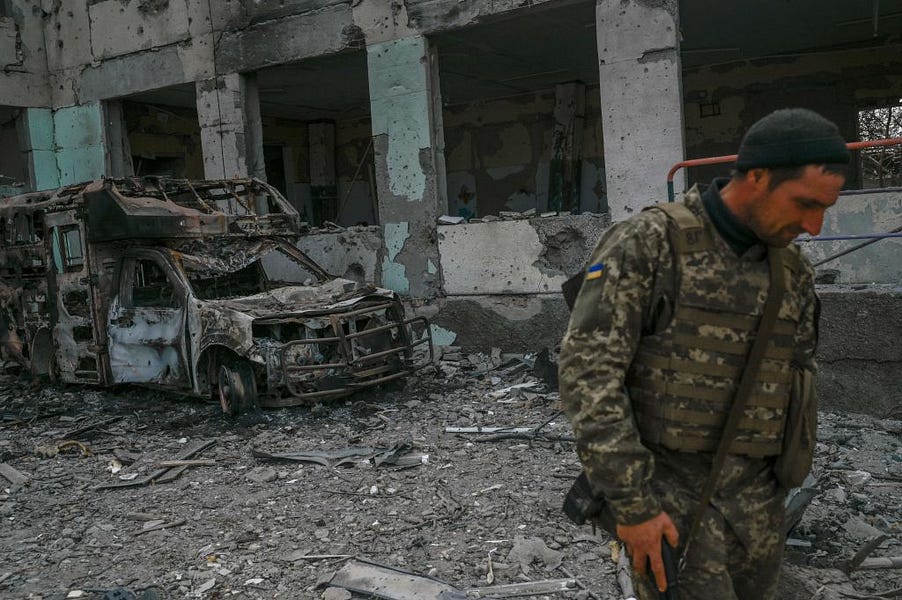
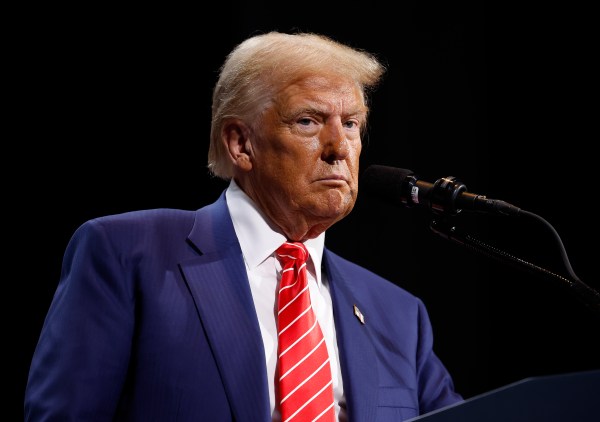
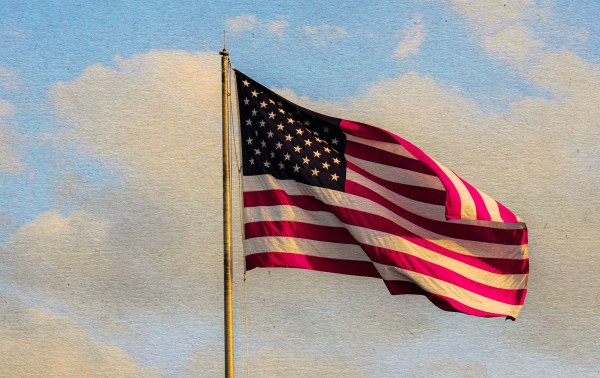
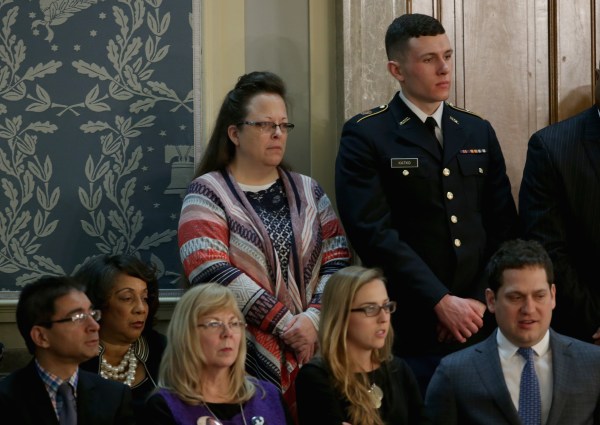
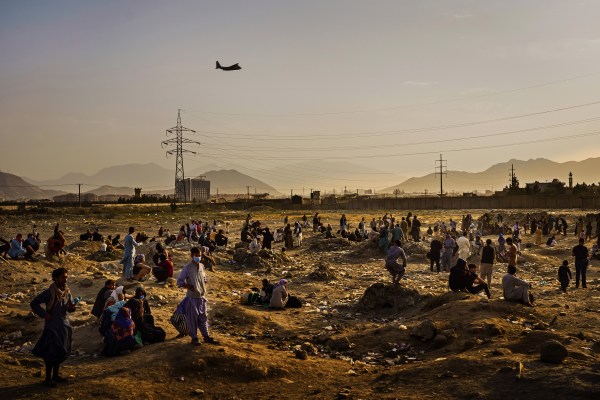


Please note that we at The Dispatch hold ourselves, our work, and our commenters to a higher standard than other places on the internet. We welcome comments that foster genuine debate or discussion—including comments critical of us or our work—but responses that include ad hominem attacks on fellow Dispatch members or are intended to stoke fear and anger may be moderated.
With your membership, you only have the ability to comment on The Morning Dispatch articles. Consider upgrading to join the conversation everywhere.